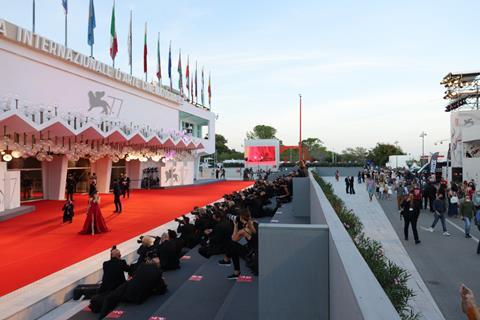
International film festival professionals were out in force at the 77th Venice Film Festival, which unfolded September 2-12 as the first major film event to take place against the backdrop of the Covid-19 pandemic.
In a sign of just how much was riding on this exceptional edition, the heads of the Berlin, Cannes, Rotterdam, Karlovy Vary, Locarno and San Sebastian film festivals joined Venice artistic director Alberto Barbera at the first press conference of the festival and on stage for the opening-night ceremony in an act of solidarity to read out a message calling for support for the whole international film festival circuit in these difficult times.
Dozens of other festival directors and programmers also eagerly hit the Venice Lido over the course of the festival’s 12-day run to show their support, reconnect with industry colleagues they had not seen in the flesh since the Berlinale, and get on with the usual business of scouting for titles and networking for their own events.
For all of them, Venice was also a key testing ground as it implemented social distancing and hygiene protocols at the same time as celebrating cinema and the communal big-screen experience.
Screen asked some of these attendees for their impressions of this year’s edition and how what they experienced will feed into their own events over the coming months.
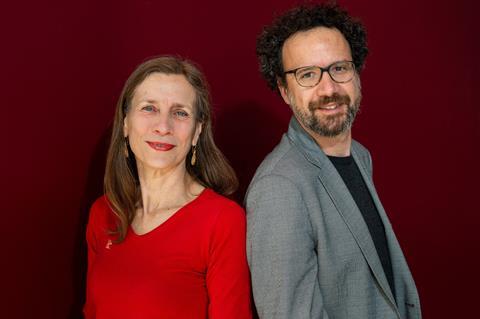
Mariette Rissenbeek & Carlo Chatrian, executive director & artistic director, Berlinale
71st edition: February 11-21, 2021
How do you think the 77th edition of Venice will go down in history?
We don’t know how the future will be and how and until when festivals will have to cope with restrictions. The 2020 edition of Venice proves that a festival can happen for “real” also during these exceptional times, and it can be a place for sharing emotions instead of fears. That is encouraging not only for all festivals but for the whole film community. We believe that it will also be remembered as a moment when festivals showed their solidarity.
How did you think the festival did on the organisation front?
The organisation of the festival was flawless. [Biennale di Venezia president] Roberto Cicutto, Alberto Barbera and their team put in place a series of measures that made everyone feel safe. For us, even if the Berlinale has a very different setting than Venice, it’s an important source of inspiration.
Were there any Covid-19 measures that you might adopt at the 2021 Berlinale?
There are definitely measures we can consider but since the different countries have quite different regulations it might not be possible to transfer the measures 100%. It is also still too early to discuss measures for next February since the regulations may change by then.
What didn’t you like?
It was a bit sad that the public audience and professionals couldn’t share the same experience, but we can totally understand why that was done.
Now that Venice has gone ahead do you think it will encourage other festivals to go ahead too?
It’s both inspiring and energising to see the Venice Film Festival celebrate cinema after a six-month break. We’re very pleased to see that all the things at the heart of a festival can still happen: filmmakers and celebrities walking the red carpet, the audience watching films and finally, meeting colleagues from different countries again. It’s a very promising first step and we are confident more will follow.
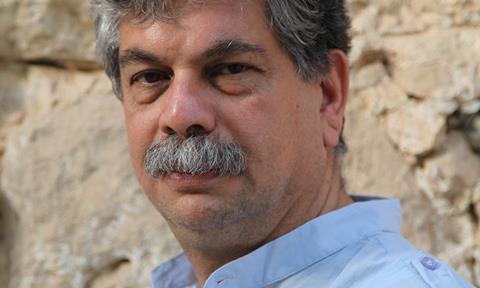
Intishal Al Timimi, festival director, El Gouna Film Festival
4th edition: October 23-31, 2020
How do you think the 77th edition of Venice will go down in history?
Despite the real sacrifice in the huge international presence within the guests, jury members and even the film programme, I think it was very important to hold this edition. It will definitely stimulate other festivals that are scheduled during the coming six months, and will be remembered in the future as a huge and important inflection point.
How do you think the festival did on the organisation front?
The festival has clearly succeeded, despite the presence of some minor loopholes. The safety measures were excellent but sometimes I found a lot of people near the red carpet or many people standing in the queue to get into the theatres. Upcoming festivals will be able to learn from the successes and loopholes of Venice. This is clearly evident in the San Sebastian safety measures document. As for its leadership in holding events in conditions of social distancing, the result was wonderful.
Will you be adopting any of Venice’s Covid-19 measures for the upcoming edition of El Gouna?
When we checked the safety procedures document that the Venice administration sent us ten days prior to the festival, we were hugely inspired by these instructions and immediately included similar ones in our correspondence with the guests attending the fourth edition of El Gouna Film Festival. While we were attending the festival, we carefully observed the practical application of these procedures. Foremost among them is the emphasis on conducting checks for foreign guests upon their arrival at the festival regardless if they have done the PCR test in their countries.
In addition to procedures for social distancing in the halls and events, we were also impressed by the way in which the viewers’ commitment to wearing masks in the correct way during the screenings was monitored, with cinema attendants following up on adherence to the instructions strictly but in a gentle manner at the same time.
Other things we took stock of were how temperatures were taken when entering the various facilities and sometimes when leaving as well, the need to provide gates for measuring temperature, accrediting electronic tickets for the shows, greatly reducing publications, and organising entry and exit movements to allow the best forms of social distancing.
Did the Venice Production Bridge give you ideas for your industry activities?
I attended the Final Cut events extensively. Our festival presents one of the prizes there. It proved, like other forums for this type of activity since March, that it is possible to successfully conduct these workshops online, or combine physical and virtual workshops together. This is what we are planning for CineGouna Platform, not only for this year, but also the future, even after the epidemic has passed.
What’s the next film event you hope to attend physically?
I am planning to attend the next edition of Cairo International Film Festival as well as Tallinn Black Nights Film Festival this year. As for next year, I will attend the Berlinale.
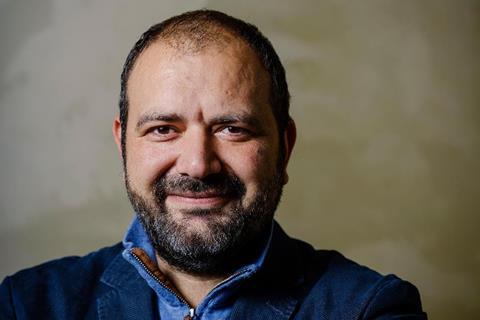
Orwa Nyrabia, artistic director, International Documentary Festival Amsterdam (IDFA)
33rd edition: November 18-29, 2020
How do you think the 77th edition of Venice will go down in history?
The massive effort that Alberto Barbera and Roberto Cicutto and their team invested in making Venezia 77 a success is of historical importance. This success was crucial for the film industry globally, for arthouse cinema in particular, and also for Venice and its people too.
It showed we can adapt and move forward, we don’t necessarily need to give up on being together or on watching films together. Then, with the regrettable and understandable absence of the studios, it was also an opportunity to show how vast the international film scene is. We may have missed the American superstars, but then, we saw how it can work very well even in their absence.
How do you think the festival did on the organisation front?
I can’t begin to describe the admiration I had walking around Lido this year. The way that the festival and local authorities collaborated to make it a success should be a lesson to everybody. It was a seamless operation that made me feel safe without being too restricted in general.
Were there any Covid-19 measures that you might adopt at IDFA?
It is complicated to compare different European countries and their different approaches to Covid-19 measures and protocols. We might not adopt a measure as is at IDFA, but it was the overall coverage of the measures that I found inspiring and will work on. The feeling that the festival and the attendants are never forgetting about the issue at any moment, yet still able to carry on with their work.
Was there anything you didn’t like?
A downside of this year was the fact that there was no buzzing space where everybody knew they’d find others in the Excelsior. However, the online elements and the panels’ streaming seems to have added a different value.
Now that Venice has gone ahead do you think it will encourage other festivals to do so too?
I’m sure it will. Everybody wants to go ahead, but the fact that the first festival to make it happen has been a success will encourage all of us. It already has.
What will be the next event you attend physically?
IDFA is around the corner in November and it will be mainly a physical event. Some parts will go online or become hybrid but we’ll do everything possible to ensure that films are premiered in cinemas. Covid-19 is full of surprises, but we trust that we have the industry and audience’s confidence that we will not compromise on safety and that we will always adapt and continue.
After IDFA for me, there will be IFFR, then the Berlinale, then Cannes… and I would like to believe they will all be physical, with online elements, and I will be there for sure.
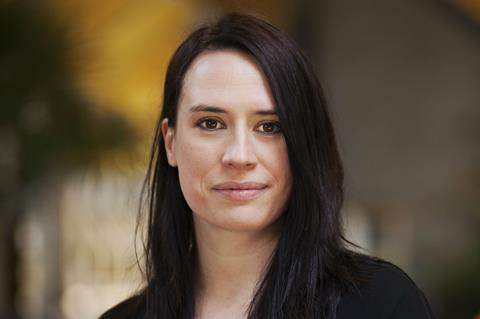
Vanja Kaludjercic, director, International Film Festival Rotterdam (IFFR)
50th edition: January 27-February 7, 2021
How do you think 77th edition of Venice will go down in history?
It was both an act of resilience and a sign of hope. Until the actual opening night it seemed almost unimaginable to be able to watch a film again on the big screen in the company of others at a festival. That they managed to pull off this event physically to such a high degree in these difficult times is fantastic and feels like a much needed fresh start for the industry. It might have been difficult to see with all of us wearing face masks but I’m sure it brought a smile to everyone’s faces.
How do you think the festival did on the organisation front?
Alberto, Roberto and the team did an excellent job. They had to adapt to the new restrictions and circumstances so quickly and they managed to make the entire festival experience run very smoothly.
What didn’t you like?
Like any festival edition there are always tweaks one can do to improve, but these are just minor details that are outweighed by the overall smooth operations.
Were there any Covid-19 measures that you might adopt at Rotterdam?
It’s very difficult to assess at this moment, especially since the measures are so different in each territory. For example, the face mask policies in Italy are very different from the ones in the Netherlands. Needless to say, we will implement all health and safety measures issued by the Dutch government. If there would be one measure that we would like to have in place over here as well, it would be to leave only one surrounding seat empty in the screening rooms. But it’s too early to say right now if that is possible.
Did the Venice Production Bridge give you ideas for your industry activities?
Like most festivals we have been working on different ideas and solutions for the last few months. It was very good to be able to experience these activities in real life though and see how it works with crowd control for example. That indeed provided us with some inspiration and food for thought.
Now that Venice has gone ahead do you think it will encourage other festivals to go ahead too?
Being there and meeting and talking with industry peers truly brought out what we have missed all these months. Film festivals are about celebrating cinema, which is more than just watching a film. It’s about context, interaction with the filmmakers, and watching the film with an audience.
As we mentioned during the opening night together with other major European film festivals, it is now more important than ever to show solidarity, especially with so many events in recent months having been forced to move online or be cancelled in their entirety. What Venice made visible is that with collective effort and creativity, we will find viable solutions for the challenges ahead.
What’s the next film event you hope to attend physically?
The next festival I will be attending is not that far away. It will most likely be our good friends of IDFA in Amsterdam. I’m very much looking forward to an international event of that scale taking place again in the Netherlands.
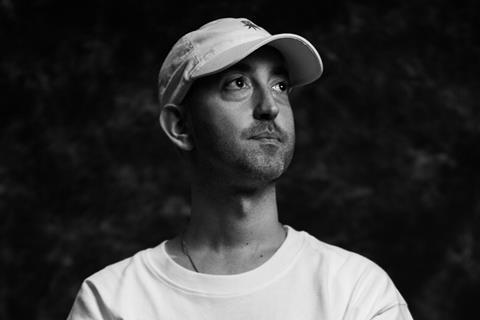
Elad Samorzik, artistic director, Jerusalem Film Festival
Special edition: December 10-20, 2020
How do you think the 77th edition of Venice will go down in history?
I hope it will go down in history as the first festival which took the risk of holding a proper event with real people because its organisers understood that film festivals are all about physical screenings and interactions between filmmakers, audience members and the film industry. Online events cannot really replace these elements which are so crucial and central for film festivals.
How do you think the festival did on the organisation front?
As I told Alberto Barbera and Roberto Cicutto, I thought the organisation was fantastic. We received all the necessary information in advance. The festival took all the necessary measures including holding Covid-19 tests for guests arriving from outside of Europe, the booking system for tickets was very friendly and efficient, and the entire staff was extremely professional. In general, the festival felt very safe and had a wonderful atmosphere.
What didn’t you like?
I only have compliments about the organisation of the festival.
Were there any Covid-19 measures that you might adopt at Jerusalem?
As a festival organiser, I learnt a lot from my visit in Venice. There are many details we are planning to adopt for our next edition, but it’s a bit early to discuss them at this point.
Now that Venice has gone ahead do you think it will encourage other festivals to do so too?
I truly hope so. I think Venice has proved we can make it work even during these troubling and confusing times.
What’s the next film event you hope to attend physically?
Probably Berlin. We are planning to finish this challenging year with a winter edition of the JFF on December 10-20 and the preparations should keep me busy in the coming months.
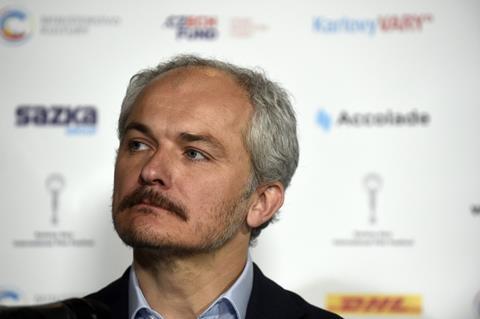
Karel Och, artistic director, Karlovy Vary International Film Festival (KVIFF)
Special edition: November 18-21, 2020
How do you think the 77th edition of Venice will go down in history?
It will be remembered as the very first of the big festivals to take place after the lockdown physically in cinemas and outside, with people meeting and discussing films.
How did you think the festival did on the organisation front?
I cannot praise them enough. Venice undertook a huge risk. Imagine what it could have done for its reputation if it had ended up being a place where a second outbreak happened? Venice succeeded in keeping it all under control, creating a precedent for every event coming after them. If you ask visitors to be disciplined you have to start with your own team – which is not small in this particular case – and in that respect, the Venice Film Festival staff was impeccable.
Were there any Covid-19 measures that you might adopt for your special upcoming KVIFF 54 ½ edition in November?
Naturally every festival is adapting their measures to the requirements of the local authorities. It’s a topic KVIFF president Jiri Bartoska and executive director Krystof Mucha are taking care of on a daily basis. I will certainly recommend the social distancing inside a cinema as experienced in Venice – it was very efficient. And on a lighter note, as a side effect it does not allow the spectators to talk so much during the screenings!
What didn’t you like?
There was nothing I did not like.
Now that Venice has gone ahead do you think it will encourage other festivals to do so too?
Absolutely. One thing is to be regularly discussing the possibilities and different scenarios together with many colleagues – we have been doing this since late spring. But what makes a huge difference is to actually see an event happening. Now the whole world has witnessed that it can be done. Venice has set a priceless precedent.
What’s the next film event you hope to attend physically?
I was going to attend the San Sebastian Film Festival, which will be the very first of the significant festivals to take place in a bigger city. But we at KVIFF need to focus now on our special November edition KVIFF 54 ½, for which we’ll be locking the line-up in early October. So I will be following the exemplary work of our Basque friends from afar, with no less excitement.
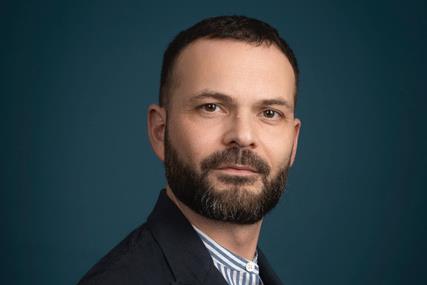
Rémi Bonhomme, artistic director, Marrakech International Film Festival
2020 edition cancelled but Atlas Workshops industry platform scheduled for November 30-December 3, 2020
How do you think the 77th edition of Venice will go down in history?
It was a unique experience for all the professionals present. It was as if we were all participating in an international film festival for the first time. There was a very particular atmosphere and the mixed pleasure of heading back into the theatres and reconnecting with our colleagues from around the world, among whom there was a great sense of solidarity.
The fact the festival took place gave a strong signal to filmmakers, who felt supported; the public, who proved their love and need of cinema by their presence; and also to industry professionals, who unfortunately are still operating at a reduced pace.
How do you think the festival did on the organisation front? You were on the jury for the Luigi De Laurentiis award for best first film. Did the social distancing and hygiene measures impact your work?
I was really impressed by the Biennale di Venezia’s approach at a time when the rules around international travel were still very fluid. The hygiene protocols were clear and very well implemented. The wearing of masks in theatres, including during the screenings, was carefully monitored by the hostesses, as well in other festival spaces such as the Excelsior hotel. The rules didn’t impact the jury’s pleasure in discovering the films in the running for the Luigi di Laurentiis award or our discussions which were passionate.
Did the Venice Production Bridge give you ideas for Marrakech’s Atlas Workshops industry platform?Unfortunately, I didn’t have time to participate in the Venice Production Bridge due to my packed jury schedule but I did monitor how its co-production market element unfolded with a mix of physical and virtual meetings.
Offering the possibility to participate virtually in an industry programme that is happening physically is an interesting approach to explore, even beyond the current context. It enables these co-production meetings to connect with more professionals. It would also allow professionals to participate in more industry platforms. The 2020 edition of the Atlas Workshops will take place entirely online. But we’re already reflecting on whether we could run the 2021 edition, which we hope will take place physically, virtually as well.
Now that Venice has gone ahead do you think it will encourage other festivals to do so too?
This edition of Venice has given hope to all festivals, showing it’s possible to hold a big film event at the same time as respecting all the hygiene protocols currently in force. It also showed that filmmakers, industry professionals and the public will also show up when a festival takes place physically.
What will be the next event you attend physically?
As of now, I’m not planning to participate in any physical festivals in the weeks to come. There’s a strong possibility that my next trips will be Rotterdam and Berlin.

























No comments yet